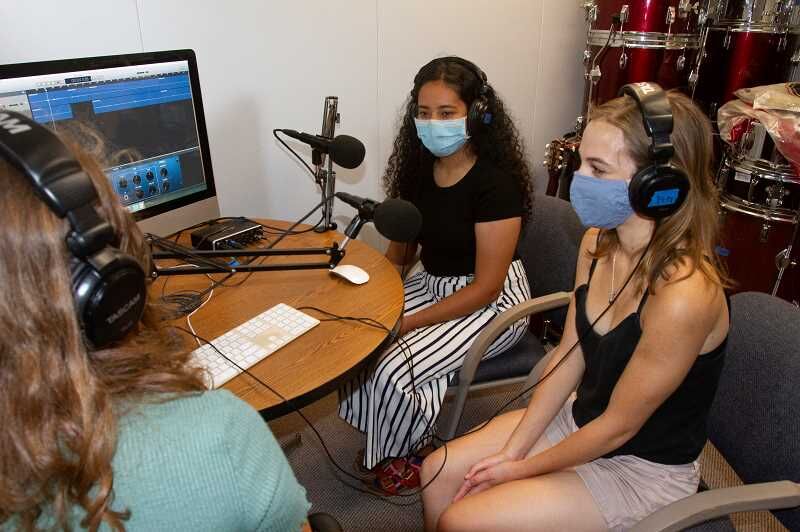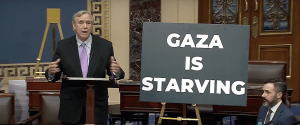Platform created for young immigrants, refugees in Portland
Published 12:00 am Wednesday, August 26, 2020

- Recording the Speak Up/Speak Out podcast in pandemic times.
“Tell us your story.”
Trending
That’s the first direction the subjects of a new podcast about immigration in Portland are given. The podcast is produced by a group of recent high school grads, which they created to connect young immigrants and refugees and the Portland community.
The podcast, called “,” is a project from the Youth Advocates for Immigrants and Refugees.
There are four main episodes in the first season of “Speak Up/Speak Out,” each around 10 minutes long. Each focuses on the story of a different young immigrant living in Portland.
Trending
St. Mary’s Academy alumna Olivia Cull and Nayantara Arora mainly host the podcast, but the subjects tell their stories in their own words.
The other members working on the podcast are Nuzhat Hoque from the Oregon Islamic Academy in Tigard, Shimon Dasgupta from Evergreen High School in Vancouver, Washington, and Kiley Hearst from Portland’s Lincoln High School.
Most of the students involved in Youth Advocate for Immigrants and Refugees said they have personal connections to immigrant stories. Arora, Hoque and Dasgupta said they are all children of immigrants to the United States.
“Both of my parents are immigrants, and as a result, I’ve been pretty pretty involved in the immigrant community growing up, at least on the east side,” Arora said. “I feel like I really valued this multicultural connection and I wanted to see what I could add to it.”
Hearst’s grandparents moved to the United States during World War II, and she also had lived in Germany. “I’d had that experience of living abroad, and not feeling included as part of the community,” she said, “and so I really wanted to make sure that anybody in the Portland area felt included and like they had a support system.”
Both Cull and Dasgupta pointed to the U.S.-Mexico border crisis and the refugee crisis in Syria, with Cull saying, “Learning about that made me want to learn more about the immigrant and refugee population in Portland.”
Dasgupta said he also noticed that, at his high school, immigrant students often were in their own groups, apart from the Vancouver natives.
“I kind of wanted to find a way to build a bridge and combine the cultures,” he said, “because I feel like that people learn more when they’re together than just being alone in their own groups.”
They said they chose to create a podcast because the medium can give people a platform without too much exposure, Dasgupta said.
“Podcasting has become a very popular method for sharing things like stories and people have started, like, actually listening to them,” Hoque added.
Youth Advocate for Immigrants and Refugees formed through the Young Leaders in Action program run by WorldOregon, which works with students in the Portland metro area to develop leadership skills while working on global issues. They based the podcast model on a story exchange process they learned through Young Leaders in Action.
The group started planning and recording the podcast a year ago, well before the coronavirus pandemic shut down schools and forced them to finish the podcast remotely. They said the most difficult part of creating the podcast was the steep learning curve for editing and mixing the podcast episodes.
“It’s just a lot of work that you don’t really anticipate when you go into it,” Hearst said. “And especially needing to do that while social distancing, so you can’t all be in one place or use other people’s technology, I think it makes it really challenging but also really rewarding because when it comes out, you can see all the hard work that you’ve put in and how well it’s turned out.”
Arora said that the whole process was a learning experience. She said, “The moment when it was published, we all did a little bit of a happy dance.”
“Right from the beginning, we had a goal and that was to publish,” she added. “So to actually reach that goal was the most rewarding part.”
They also received a grant from the Stevens Initiative, which allowed them to pay the subjects a small stipend for their time.
Working remotely during the pandemic showed them that they can continue the podcast remotely, they said, so they will continue to produce the podcast after they leave for their respective colleges. They’re working on season two now and are still looking for subjects.
They said they hope the podcast also will help them grow Youth Advocates for Immigrants and Refugees and recruit new students so that the organization will continue after they move on, Dasgupta said.
“One of our initial goals was making sure that the cross cultural communication was being done by peers,” Hearst said. “Now we’re all adults, and we don’t really want to be facilitating conversation that way. We really want it to be between people of the same age so that they understand each other, and it’s less like a lesson or school.”
Hoque added, “I only hope that more people will listen to our podcast.”







